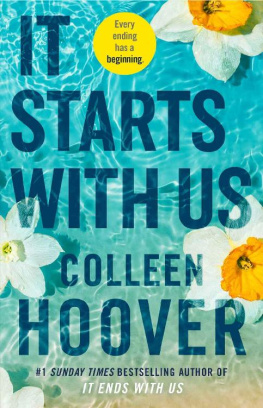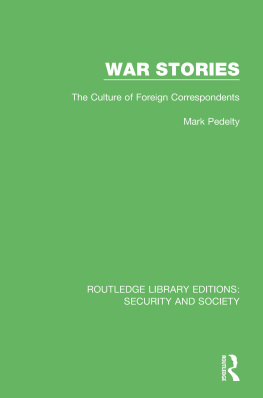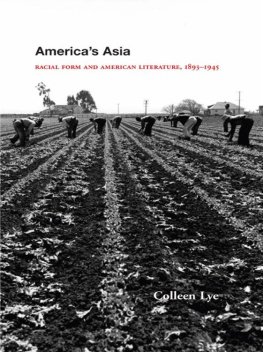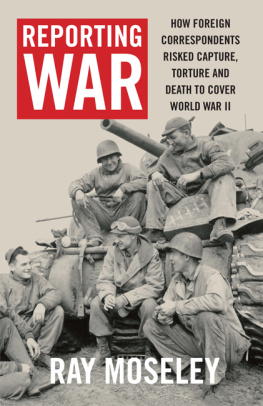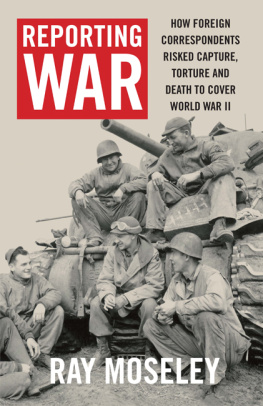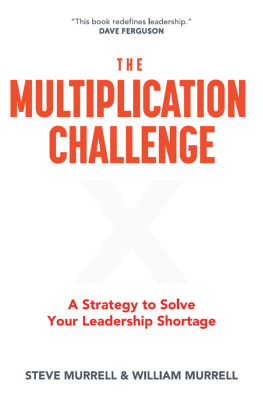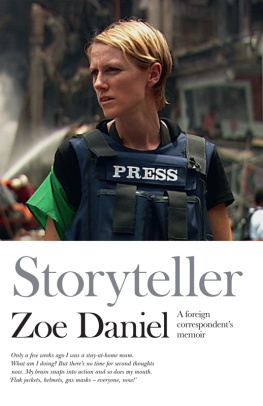Foreign Correspondents and International Newsgathering
Colleen Murrell thoroughly and thoughtfully addresses the role of the fixer, an integral player in international news coverage whose work does much to shape how global news audiences see the world.
Philip Seib, University of Southern California, USA
This book reveals that fixerslocal experts on whom foreign correspondents relyplay a much more significant role in international television newsgathering than has been documented or understood. Murrell explores the frames though which international reporting has traditionally been analysed and then shows that fixers, who have largely been dismissed by scholars as logistical aides, are in fact central to the day-to-day decision-making that takes place on-the-road. Murrell looks at why and how fixers are selected and what their significance is to foreign correspondence. She asks if fixers help introduce a local perspective into the international news agenda, or if fixers are simply People Like Us (PLU). Also included are in-depth case studies of correspondents in Iraq and Indonesia.
Colleen Murrell is a senior lecturer in broadcast journalism at Deakin University in Melbourne. She has written a number of academic journal articles that explore the evolution of international newsgathering. In her previous career, Colleen worked as a producer, reporter and news editor for organisations including the BBC, ITN, APTN, ABC and CBC.
Routledge Research in Journalism
1 Journalists, Sources, and Credibility New Perspectives
Bob Franklin and Matt Carlson
2 Journalism Education, Training and Employment
Bob Franklin and Donica Mensing
3 Network Journalism Journalistic Practice in Interactive Spheres
Ansgard Heinrich
4 International News in the Digital Age
East-West Perceptions of a New World Order
Judith Clarke and Michael Bromley
5 Digital Media and Reporting Conflict Blogging and the BBCs Coverage of War and Terrorism
Daniel Bennett
6 A Global Standard for Reporting Conflict
Jake Lynch
7 The Future of Quality News Journalism A Cross-Continental Analysis
Edited by Peter J. Anderson, George Ogola, and Michael Williams
8 Journalism and Eyewitness Images Digital Media, Participation, and Conflict
Mette Mortensen
9 Foreign Correspondents and International Newsgathering
The Role of Fixers
Colleen Murrell
First published 2015
by Routledge
711 Third Avenue, New York, NY 10017
and by Routledge
2 Park Square, Milton Park, Abingdon, Oxon OX14 4RN
Routledge is an imprint of the Taylor & Francis Group, an informa business
2015 Taylor & Francis
The right of Colleen Murrell to be identified as author of this work has been asserted by her in accordance with sections 77 and 78 of the Copyright, Designs and Patents Act 1988.
All rights reserved. No part of this book may be reprinted or reproduced or utilized in any form or by any electronic, mechanical, or other means, now known or hereafter invented, including photocopying and recording, or in any information storage or retrieval system, without permission in writing from the publishers.
Trademark Notice: Product or corporate names may be trademarks or registered trademarks, and are used only for identification and explanation without intent to infringe.
Library of Congress Cataloging-in-Publication Data
Murrell, Colleen, 1961
Foreign correspondents and international newsgathering : the role of fixers /
by Colleen Murrell.
pages cm. (Routledge research in journalism ; 9)
Includes bibliographical references and index.
1. Foreign news. 2. Television broadcasting of news. 3. Reporters and
reporting. 4. Translating and interpreting. I. Title.
PN4784.F6M88 2014
070.4332dc232014030180
ISBN: 978-0-415-73335-9 (hbk)
ISBN: 978-1-315-84847-1 (ebk)
Typeset in Sabon
by Apex CoVantage, LLC
To my husband Cameron, daughters Cassandra and Xanthe, and my sister Helen.
You dont seem to care if I get killed. This guys dangerous, Matthew, the beach was in Beirut and Matthew was a reporter Id been arguing with for the last few daysall the way through Tel Aviv, the West Bank and Cyprus. Now we were in Lebanon and we seemed to have moved on from arguing about the politics of Northern Ireland and the rights of Israeli settlers to focus on Matthew and his fear of being kidnapped. You wont get killed, he hissed, You re a woman. I wanted to walk away but I knew I had to hold my ground. So I explained all the stages Id gone through until Id found Samir. I told him again about all the old and current Lebanon hands Id spoken to who had recommended Samir as knowledgeable, agreeable and safe. Samir was sitting some way off; it was hard to work out if hed been listening to this exchange. If he had, then he was showing himself to be too polite to take part.
Samir went on to be an excellent fixer during our short trip in 1992 to cover stories about Lebanons rebuilding after the civil war. He talked us past the many sentry posts that were still scattered across the countryside. He appeared to be connected with all religious and factional groups, even though the Maronite Christians whod been whispering in Matthews ear clearly didnt like the look of him because he was Muslim. Like many fixers with whom Id worked, Samir didnt appear to be trying to influence coverage overtly, he simply relayed to us stories from the newspapers or contacted the people with whom we wanted to talk, including Christian and Druze warlords. Over the course of the coming week I was to learn that his true interest lay elsewhere and that his fixing work appeared to be a cover for liberating Lebanons archaeological sites of some of their portable antiquities. But while he was bartering with the people doing a cursory job of guarding the old sites, he was also doing an excellent job of finding us people to explain the intricacies of Prime Minister Hariris building plans for Beirut.
This was the first time Id ever stopped to question myself about how I actually found fixerswho they were and what credentials they had for this job of mediating what journalists can access in their countries. In the television companies Id worked for fixers were mostly found through foreign desk databases, via word of mouth from other reporters or by calling up local newspapers, government agencies or universities in the countries concerned. Sometimes they were also picked up ad hoc, on-the-road, as needed. Over the next few years I thought more carefully about the fixers I hired for myself or for my colleagues, asking myself if I was choosing the right person for each job.
Some years later I moved to Melbourne, where fixers werent necessary, as the reporting jobs I was doing were very local and I was busy trying to turn myself into a local. But when I joined the academy and decided to do a PhD on international newsgathering, I thought about fixers again because I was very surprised to find that in the books I was pulling off the library shelves about foreign correspondents there was nary a mention of the role of fixers in newsgathering. It took me a while to convince my supervisors at The University of Melbourne that fixers did play an important role in helping reporters with contacts, story ideas, context, guidance and language, as they had read the available literature and therefore didnt think these local-hires could be significant.



